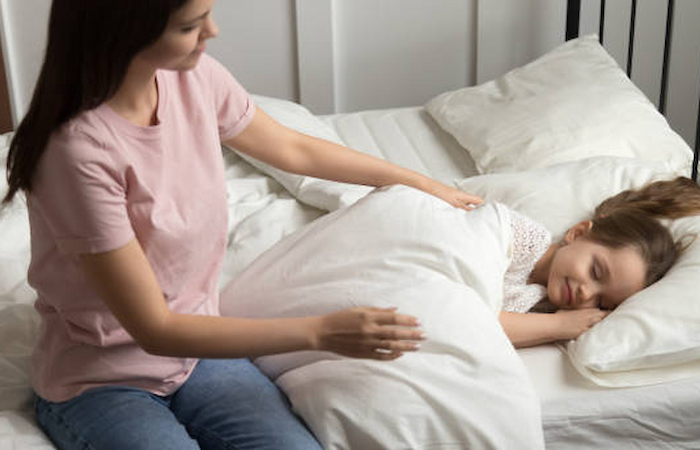When to Move Baby to Own Room

When you become a parent, you’re often faced with numerous questions, and one of the most common is, “When to move baby to own room?” The decision of when to move your baby to their own room is a significant milestone in your child’s early life, and it’s essential to consider various factors when contemplating this transition.
1. Sleep Safety and “When to Move Baby to Own Room”
First and foremost, “when to move baby to own room” should be guided by sleep safety. The American Academy of Pediatrics (AAP) recommends that infants share their parents’ room for at least the first six months to reduce the risk of Sudden Infant Death Syndrome (SIDS). So, considering the safety of your baby’s sleep environment is paramount.
2.When should you move your baby to their own room?

Deciding when to move your baby to their own room is a personal and developmental milestone. Experts often recommend that infants share their parents’ room for at least the first six months to reduce the risk of Sudden Infant Death Syndrome (SIDS). However, the timing can vary depending on individual circumstances. It’s essential to consider factors such as your baby’s age, sleeping habits, and developmental cues. Additionally, parental comfort and the size of your living space play a role in this decision. Trusting your instincts as a parent and ensuring a safe sleep environment in the baby’s room are key elements in determining when the transition is right for both you and your baby.
3. Sleeping Habits and “When to Move Baby to Own Room”

Another crucial factor influencing “when to move baby to own room” is your baby’s sleeping habits. If your baby consistently sleeps through the night and has established a predictable sleep routine, it might be an appropriate time to initiate the transition.
4. Size of Living Space and “When to Move Baby to Own Room”
The size of your living space can impact your decision regarding “when to move baby to own room.” If your bedroom is small, limited space may necessitate moving your baby to their own room sooner to ensure everyone has enough space to sleep comfortably.
5. Parental Comfort and “When to Move Baby to Own Room”
Your own comfort and confidence play a significant role in determining “when to move baby to own room.” You should feel comfortable with the move, ensuring that both you and your baby are ready for this transition.
6. Baby’s Development and “When to Move Baby to Own Room”

Watch for signs of increased independence and a desire for personal space in your baby. Sometimes, their developmental milestones can guide you in deciding “when to move baby to own room.“
7. Baby’s Sleep Cues and “When to Move Baby to Own Room”
Pay close attention to your baby’s sleep cues. If they appear restless or frequently wake up due to noise or disturbances in your room, it may be an indication that they are ready for their own space.
8. Noise Level and “When to Move Baby to Own Room”
Evaluate the noise level in your home. If your room tends to be noisy and disrupts your baby’s sleep, moving them to a quieter room may be beneficial.
9. Parental Sleep Quality and “When to Move Baby to Own Room”

Consider your own sleep quality as well. If having your baby in the same room hinders your ability to sleep soundly due to their movements or noises, it may be time to make the move.
10. Transition Gradually and “When to Move Baby to Own Room”
When you decide it’s time to move your baby to their own room, consider a gradual transition. Start with naps in their room to help them become accustomed to the new environment.
11. Monitor Baby and “When to Move Baby to Own Room”
Investing in a reliable baby monitor is essential when “when to move baby to own room.” It allows you to keep a close eye and ear on your baby when they are in their own room, helping you respond quickly to their needs.
12. Ensure a Safe Sleeping Environment and “When to Move Baby to Own Room”
Lastly, make sure the baby’s room is set up with a safe sleeping environment. This includes a crib with a firm mattress and no loose bedding or toys.
Conclusion: The timing of “when to move baby to own room” can vary from family to family. It’s crucial to consider factors such as sleep safety, your baby’s age and habits, the size of your living space, and your own comfort level. By carefully assessing these factors and trusting your parental instincts, you can determine the most appropriate time to transition your baby to their own room, ensuring a safe and comfortable sleep environment.







